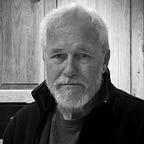CHILD LEARNING – Intelligence & Assessment
Part One – Intelligence
Recently I watched two videos on YouTube in which Mr. Howard Gardener (The Big Think), offered up his insights on two topics that seem to dominate discussions on Learning, (Intelligence & Assessment). After many years of coaching and teaching, my experiences have led to some revelations that lie outside of curriculum and assessment, yet have just as much impact.
It may be helpful to offer up definitions for some of the terms we use, as they continue to be the source of disagreements. We need to speak the same language and understand the essence of what we are discussing. I am highlighting intelligence & assessment to illustrate my thoughts on both.
Intelligence is a weighty and complex issue that can be taken in a variety of contexts. Ability, capacity, skill development, talent, hard work, a natural affinity and so on all having different connections and validity to intelligence, in that they will vary with each person’s understanding and experience. A more detailed description of the intent behind words chosen, must be provided. If we are not all on the same page, then these is no common ground.
I have been to many meetings, staff, coaches, PD, etc, where I have been witness to a lot of vitriol, anger, fixed belief systems and stubbornness. Defensive walls go up before any discussion can start. I would propose a different process that might reduce turf protection, personal challenge, egos and more. When long standing beliefs and entrenched positions are taken, they must be dealt with first. The environment must be correct and appropriate to avoid wasting time we don’t have the luxury to spare. A neutral turf must be found whereby ideas can be put on the table and discussed openly. If there is no personal safety from attacks, then there is no point in even starting. The ground conditions set up adversarial conditions.
A good place to start might be with an agreement and understanding of terminology. This would be the most important first step, to clarify that. what we are discussing are the same things.
Is intelligence an innate quality? Is it a quality at all? Is it based on genetics? Can intrinsic intelligence be developed or improved? If so, how and if not, why not? What is the evidence either way that can withstand scrutiny? Who is allowed into the debate? What is the difference between intelligence and talent? How do we know? Where and why do we apply these terms? Can we back up our views with evidence either for, or contrary to, these beliefs? There are so many questions to deal with before we can have a productive discussion and debate
I used to ask my students in the first class of a new semester one question. I would show them my graduation average from high school – 65%. Not exactly awe inspiring. I would then show my graduating average from Teachers College at the University of Toronto. It was 3.9 out of a possible 4.0, essentially a 98% average. Which of the two graduation marks, did they think was more accurate and indicative of who I am? They were confused, many not understanding the question. Most picked the higher mark, wanting to please me I’m sure! I told them that both were right. Each represented where I was at different stages of my life. It was important that they dispel any personal false belief systems about their capabilities. Those false beliefs would become future limitations.
They had to understand that other opinions don’t count and limitations are where they choose to stop. Even before I would say a word at the first class of a new semester I would hear, “Sir, I just want to tell you that I am no good at this tech stuff.” I believe this was to lower my expectations so they could lower theirs. “We haven’t even turned on the computer yet I would reply. It doesn’t matter sir as I have always been lousy at this stuff.” False belief systems lead them to believe intelligence is a fixed commodity. This is critical to understand that children cease to try if they feel no amount of effort will work anyway. Perception became reality. Reality became a belief system. That belief system stayed with them for the rest of their lives. They would cease to expand their capabilities and potential, leading to an unfulfilled life.
Bill Howe
WC Howe Institute of Learning
